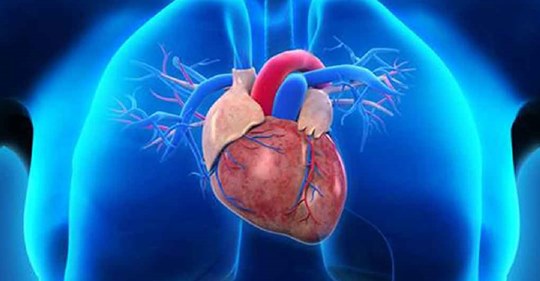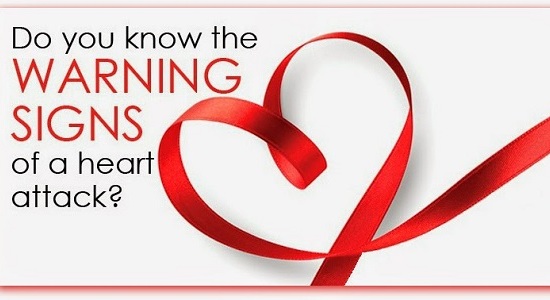
A Month Before a Heart Attack, Your Body will Warn You with These 8 Signs
If something went wrong with your heart, would you know it? Not all heart problems come with clear warning signs. There is not always an alarming chest clutch followed by a fall to the floor like you see in movies. Some heart symptoms don’t even happen in your chest, and it’s not always easy to tell what’s going on.
Not all people who have heart attacks have the same symptoms. Some people have mild pain; others have more severe pain. Some people have no symptoms. While for others, the first sign may be sudden cardiac arrest. However, the more signs and symptoms you have, the greater the likelihood you’re going to have a heart attack.
Prevention is better than cure. This simple rule applies to any disease and is especially valuable when symptoms are not properly acknowledged. And if the matter is of heart, it’s better to take extra caution.
Don’t wait to get help if you experience any of these below discussed heart attack warning signs. Although some heart attacks are sudden and intense, most start slowly, with mild pain or discomfort.
8 Warning Signs Pointing To a Near Heart Attack

1. Chest Discomfort
It’s the most common sign of heart in danger. If you have a blocked artery or are having a heart attack, you may feel pain, tightness, or pressure in your chest.
2. Shortness of Breath
Feeling short of breath is a common symptom of a heart attack. Shortness of breath, or difficulty in breathing, is medically known as dyspnea. Shortness of breath may occur before or during the chest pain of a heart attack, and in some cases, it may be associated with other heart attack symptoms without any chest pain.
3. Abdominal Discomfort
Sometimes the pain of heart attack is described as stomach pain, or pain in the middle of the upper abdomen. The pain usually feels more like discomfort of heaviness than sharp, stabbing pain, and the pain tends to persist more than a few minutes. This can occur with or without pain in the true chest area.
4. Fatigue
Unusual fatigue is one of the main symptoms that indicate an approaching heart attack. Women are more likely to report this type of symptom than men. Physical or mental activity is not the reason for the fatigue, and it increases by the end of the day. This symptom is quite apparent and will not go ignored. Sometimes it’s exhausting to complete simple household tasks, like making a bed or taking a shower.
5. Insomnia
Insomnia is also associated with an increased risk of a heart attack or stroke, which is more common among women. Insomnia features often include a high level of anxiety and inattentiveness, difficulty maintaining sleep, and early-morning awakening.
6. Irregular Heartbeat
Skipped or irregular heartbeats are often accompanied by a panic attack and anxiety, especially among women. It appears unexpectedly and reveals itself differently. Physical exercises might give an extra stimulus to the increase of heart rate, especially in cases with atherosclerosis (narrowing of arteries) disease.
Here are 10 best foods for your heart health.
7. Sweating
Sweating can also accompany a heart attack. People suffering from this sign describe the feeling like they are breaking out in a cold sweat.
8. Upper Back Pain
The upper back is another common location for the pain from a heart attack. Most commonly, back pain that stems from a heart attack is defined as occurring between the shoulder blades.
If you face any of the above sign and are in doubt, you should see a doctor right away.

